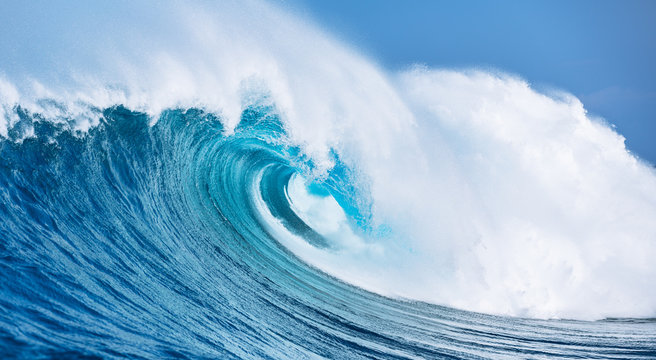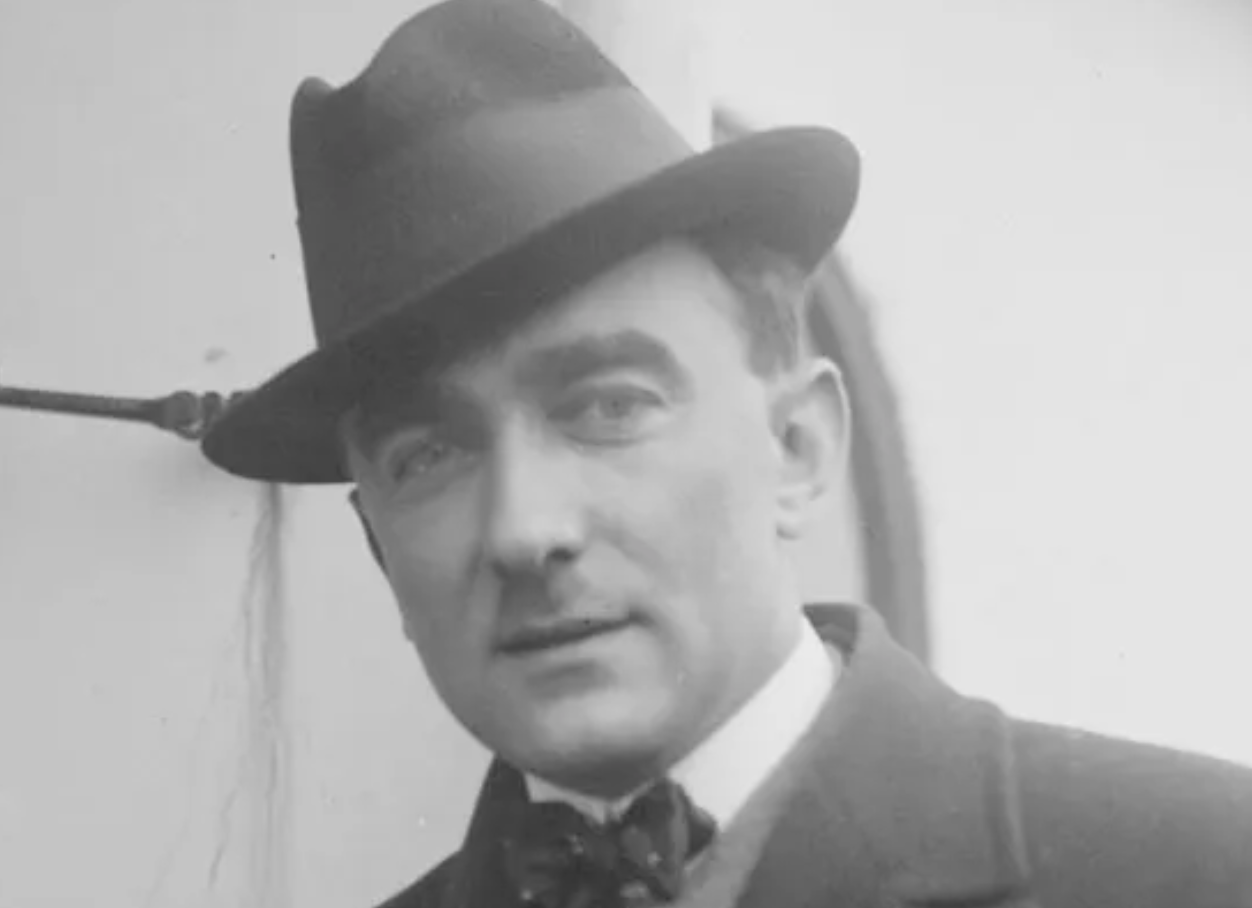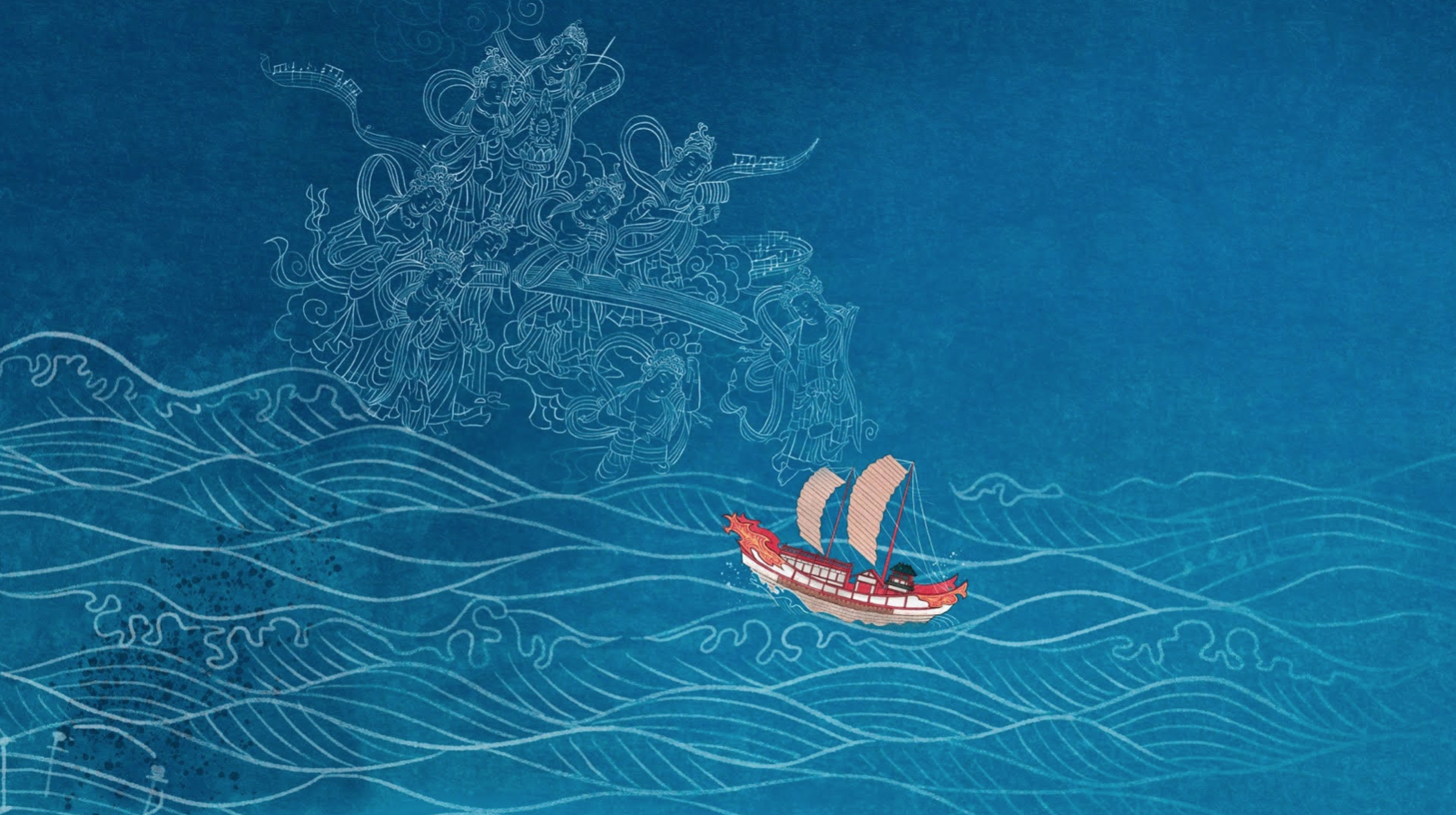“And on its limitless, heaving breast, the ships”. The wonderful and unforgettable opening line of Ralph Vaughan Williams’ spectacular A Sea Symphony sung out by the chorus with a majestic orchestral fanfare swirling around them and the magnificent poetry of Walt Whitman.
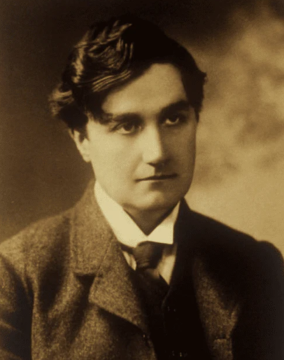
This glorious symphony, the first and longest of nine written by Ralph Vaughan Williams (hereafter referred to as VW), who was not only a composer of the utmost importance for English music but also one of the great symphonists of the 20th century. A Sea Symphony was completely pioneering as one of the first symphonies in which a chorus was used throughout as an integral part of the texture. This bold new compositional style helped set the stage for a new era of symphonic and choral music in Britain during the first half of the 20th century.
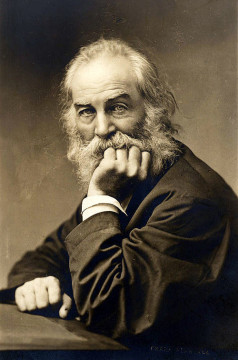
A Sea Symphony began life as ‘The Ocean’ in 1903 when VW was only 30/31, at a point in his life where he had ‘discovered’ the American poet Walt Whitman – one of the most influential poets in American and world literature – and was studying with Maurice Ravel in Paris. The following six years of its creation charted VW’s parallel journey of self-discovery, from the opening movement with its broad choral and orchestral strokes and towards the spiritual immensities searched out with a shimmering, Ravel-inspired mastery in the symphony’s finale, where VW’s imagination was free to roam on the largest scale, and with Walt Whitman’s words invoking us to ‘steer for the deep waters only.’
On 12th October 1910, his 38th birthday, VW stepped onto the podium in Leeds Town Hall to conduct the Leeds Festival Chorus and Orchestra in the first performance of his A Sea Symphony.
“Vaughan Williams was a remarkable composer”, our President Sir Mark Elder – who is conducting this concert – told us. “My friend Michael Kennedy, who wrote ‘the bible’ of VW’s life and was great friends with him, said to me that VW was the most distinguished and greatest man he ever met in his life. He had the greatest charisma and strength and the most amazing strength of personality. When VW wrote this symphony he hadn’t written anything on this scale and the idea was that he would try and write an English symphony which he hadn’t really done before.
He was very self critical of his abilities so A Sea Symphony is an experiment in how a symphony can be. Superficially it’s rather conventional but it moves on to be something completely different and has a very special quality. I love it because it has such colour, passion and mysticism – Vaughan Williams was a very mystical composer.
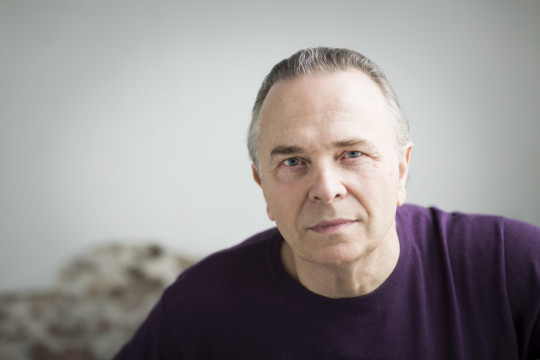
(image licensed to Sir Mark Elder for publicity use)
The writing for the chorus is demanding and dangerous; it’s on the edge of what is comfortable in both the words and the music, it has an atmosphere unlike anything else and I think this is a very special work and many people treasure it deeply. It has such colour, passion and mysticism. The beginning is very famous – you only need to hear it once and it’s the most brilliant beginning to a large scale work. The finale is half the length of the work and is not a finale in the normal sense at all. It’s a sort of vision of how we can go beyond ourselves, dream of other worlds and proportions in our lives and in our imaginations.
After its brilliant opening fanfare with orchestra and chorus, the first movement, Song for all Seas, all Ships, is generally fast and ecstatic whereas the second movement, On the Beach at Night Alone, is a slow and soul searching nocturne in which you can literally hear a calm sea just brushing against the sand; it has the most beautiful vividness. Movement three, The Waves (scherzo) is about the waves and the water dancing together. It’s very virtuosic and goes at a real lickety split pace for the chorus who sing this without soloists, and it’s very dynamic and energetic.
All that, the three movements, is preparation for what VW wanted to achieve in the last movement, The Explorers, which is completely different. The words in the final movement are much more visionary so the music is much more experimental and unexpected.
O vast Rondure, swimming in space,
Cover′d all over with visible power and beauty,
Alternate light and day and the teeming spiritual darkness,
It has a beautiful simplicity but also a great depth of expression. I think it’s a brilliant movement but difficult to pull off. One might have thought that VW would want a victorious energetic ending but the opposite is the case. One gets the feeling at the end that we’re being taken further and further away at the end of the piece – into another realm.
The writing for the soloists is very important and imaginative. They’re the leaders of different poetic ideas and bring an exalted presence to the piece and an intensity and a desire to lift the whole work onto another level. The radiance of the soprano’s first entry is remarkable and we’re very fortunate to have the wonderful Masabane Cecilia Rangwanasha singing with us. She has the most wonderful quality of voice and is a fabulous person who is deeply spiritual and very artistic. You need someone like this at the front of A Sea Symphony, and singing alongside her of course is our marvellous Scottish baritone David Stout.
 Young South African soprano Masabane Cecilia Rangwanasha is known for her supreme transcendent soprano voice. An alumni of the Royal Opera House’s Jette Parker Young Artist Programme, she was a hugely popular winner of the song prize in at the 2021 BBC Cardiff Singer of the World Competition and recently was awarded the 2024 Herbert von Karajan Prize at the Salzburg Easter Festival. In the 2025/26 season, whilst balancing her role as a new mother, she makes her debut at the Metropolitan Opera as Liù in Puccini’s Turandot, a role she will also sing at the Royal Ballet & Opera, and has a formidable list of other upcoming international performances.
Young South African soprano Masabane Cecilia Rangwanasha is known for her supreme transcendent soprano voice. An alumni of the Royal Opera House’s Jette Parker Young Artist Programme, she was a hugely popular winner of the song prize in at the 2021 BBC Cardiff Singer of the World Competition and recently was awarded the 2024 Herbert von Karajan Prize at the Salzburg Easter Festival. In the 2025/26 season, whilst balancing her role as a new mother, she makes her debut at the Metropolitan Opera as Liù in Puccini’s Turandot, a role she will also sing at the Royal Ballet & Opera, and has a formidable list of other upcoming international performances.

19th October 1977 – 2nd July 2025
This performance is also particularly special to us as it is dedicated to the memory of James ‘Jim’ Wilson, a cherished member of the Choir since 2002. Jim was both a gifted singer and a kind-hearted spirit who welcomed countless new members with warmth and encouragement during his time as host. Outside of the LPC, Jim channeled his deep passion for classical music through his role at Junior Guildhall, inspiring young musicians to develop their talents. Jim’s loss is felt deeply by all who knew and sang beside him. His beautiful bass voice, warm laugh and thoughtful kindness will be in our memories for years to come and he is sadly missed. Our thoughts and hearts go out to his wife Tara and their young children Tom and Ella at this sad time. In memory of Jim we have also sponsored a named seat in the bass section of the Royal Festival Hall choir stalls.
Bass Rylan Holey, for whom A Sea Symphony is a bucket list piece, remembers Jim fondly:
“Jim was one of the first people I met in the choir when I joined the LPC – he was just the nicest human. He was always so friendly, always had a smile, and he also had the most amazing voice – he nailed every note in rehearsals and concerts. I always sat with him and that was great because he was so dependable musically as well as personally. He could talk to anyone and people loved to talk to him; he was just so lovely and was a real asset to the choir. I was so happy when he came back after a short hiatus earlier this year to sing in the Mahler 8 with us in April and I’m so sorry and sad not be singing A Sea Symphony alongside him now, but I will definitely be singing it for him.
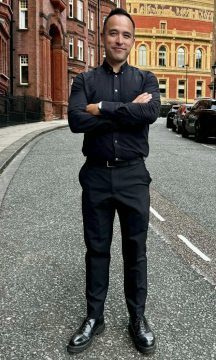 A Sea Symphony is one of the pieces I really got into and was fascinated by when I was at university. I remember sitting in Durham’s library listening to a recording of it conducted by Vernon Handley and it was the amazing opening of the piece that really struck me and hooked me in. It’s got everything you love about Vaughan Williams – you can feel all that energy and nature and musical alliteration in the orchestration and the singing, the undulating waves. It’s very abstract but so well put together and thought through with so many layers; it’s really accessible but also very deep. I loved some of the tunes and melodies of this piece so much that while I was at university it inspired me to write a little piece about the sea myself and I was thrilled when the renowned pianist Stephen Hough played it.
A Sea Symphony is one of the pieces I really got into and was fascinated by when I was at university. I remember sitting in Durham’s library listening to a recording of it conducted by Vernon Handley and it was the amazing opening of the piece that really struck me and hooked me in. It’s got everything you love about Vaughan Williams – you can feel all that energy and nature and musical alliteration in the orchestration and the singing, the undulating waves. It’s very abstract but so well put together and thought through with so many layers; it’s really accessible but also very deep. I loved some of the tunes and melodies of this piece so much that while I was at university it inspired me to write a little piece about the sea myself and I was thrilled when the renowned pianist Stephen Hough played it.
When I came down to London twenty years ago A Sea Symphony was one of the first BBC Proms I went to and it was just wonderful – it’s such a fantastic piece with all its ebbs and flows. One of the reasons I then joined the Choir was in the hope of singing this piece. I’ve waited eighteen years for that and now, finally, the time has arrived – I’m so excited about this! It’s also one of the few pieces that I’ve gone into in the rehearsal for and known so much about without ever having sung it!”
Soprano Linda Park is completely new to the piece – she’s also a sailor and loves the connection to the sea through this music:
“I am really looking forward to this concert as this is a first performance of the piece for me. Sir Mark Elder is the perfect conductor for this work and our chorus director Madeleine’s enthusiasm and love for this piece, so evident at rehearsals, is infectious.
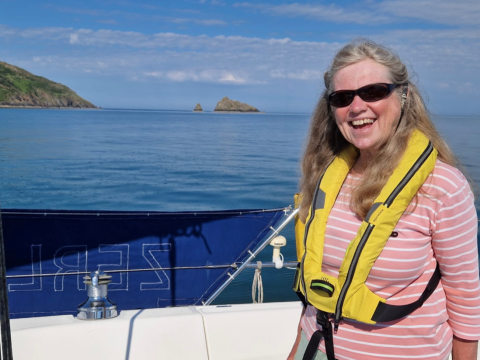 Sailing is another hobby of mine and being out on the water with the sound of the waves gently lapping our boat ‘Zerlina’ is very calming. On the best days pods of dolphins, now regulars in Start Bay in Devon, will join us. It’s a great way to de-stress, but as we all know, being on the ocean is not always plain sailing.
Sailing is another hobby of mine and being out on the water with the sound of the waves gently lapping our boat ‘Zerlina’ is very calming. On the best days pods of dolphins, now regulars in Start Bay in Devon, will join us. It’s a great way to de-stress, but as we all know, being on the ocean is not always plain sailing.
Vaughan Williams’ music captures the motions of the sea and the challenges faced by the ships and those sailing upon it. From the striking open chords and the words ‘Behold the sea itself’ you get the message that the sea must be respected at all times. It’s one thing to be out on a summer’s day in a fair wind with full sail up, but conditions can change quickly. Failing to properly plan a passage around one of the south coast’s beautiful headlands, with worsening weather and wind against tide, can turn a pleasant afternoon into a frightening ride in an industrial washing machine. Turning on the engine to try and motor out of the turbulence quicker is no good either as fisherman love to lay their lines for lobster pots at headlands and getting one of these around your propeller puts you in real danger.
In ‘The Waves’ (No 3) the music and words so clearly convey the feeling of trying to stay in control as you ride out a bad sea state. ‘Toward that whirling current’ brings back memories of our first attempt at rounding Portland Bill when we were effectively going backwards!
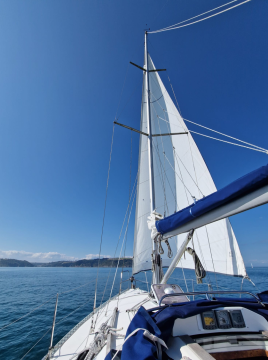 Sailing a boat you have chartered overseas is a real adventure – a new boat to master and waters you do not know. Corsica, Majorca, Turkey and the Caribbean all had their challenges. Reading paper navigation charts has been replaced by electronic GPS plotters on board these days making life easier, but you never know when you might have to resort to the old fashioned way. Leaving port, setting sail and arriving safely at a new and unknown destination after your sea-bound journey is so satisfying.
Sailing a boat you have chartered overseas is a real adventure – a new boat to master and waters you do not know. Corsica, Majorca, Turkey and the Caribbean all had their challenges. Reading paper navigation charts has been replaced by electronic GPS plotters on board these days making life easier, but you never know when you might have to resort to the old fashioned way. Leaving port, setting sail and arriving safely at a new and unknown destination after your sea-bound journey is so satisfying.
I don’t think I will be giving up singing with LPC and sailing off around the world any time soon but as we sing the final Adagio of the symphony with its gentle rocking motion, the words will speak for themselves:
O my brave soul! O farther sail!
Come and hear us
Friday 31st October 2025
7.30pm, Royal Festival Hall
Sir Mark Elder conductor
Masabane Cecilia Rangwanasha soprano
David Stout baritone
London Philharmonic Orchestra
London Philharmonic Choir
Sibelius Scènes historiques (Suite II)
Sibelius The Oceanides
Vaughan Williams A Sea Symphony

